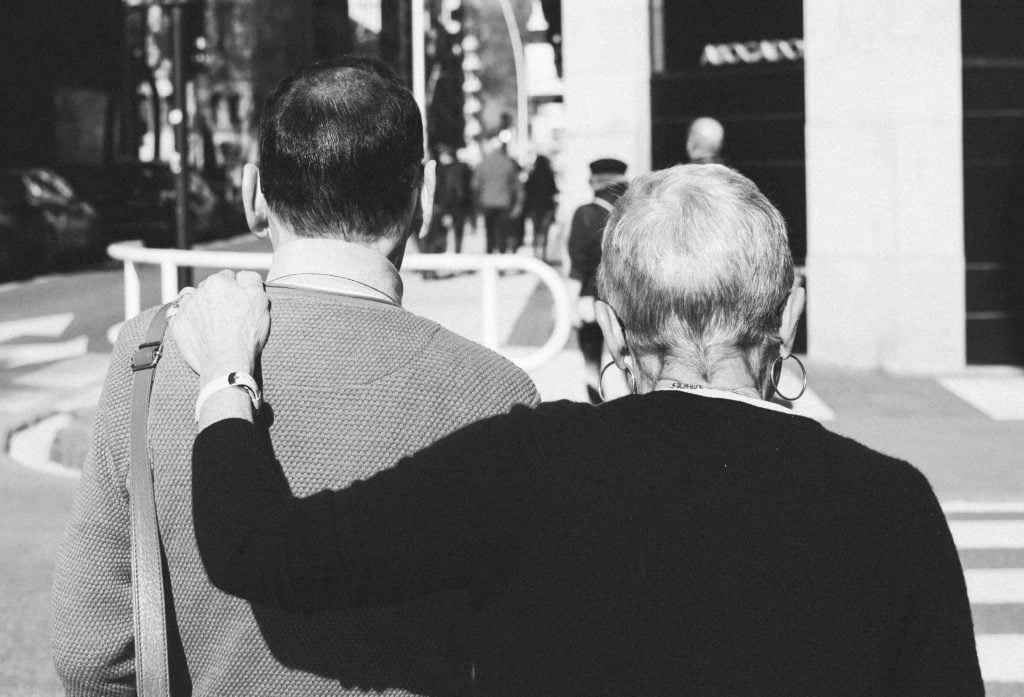 Mother and son (Not actual photo of those discussed in the article). : Kamila Maciejewska/Unsplash
Mother and son (Not actual photo of those discussed in the article). : Kamila Maciejewska/Unsplash
By V. Srikanth, Monash University
When I said farewell to my mother in India in January 2020 to go back home overseas, I didn’t know that it would be the last time I’d see her.
I had been with Amma for the previous four weeks while she underwent knee surgery and was recovering from it. She had been getting much less able and mobile with a very deformed knee, and hadn’t been coping well with being forced to slow down.
After I left, COVID emerged, and she and my father went to stay with my sister about five hours away in a semi-rural setting. Indeed for the next six months, she had a much improved quality of life, able to move around without discomfort. During our conversations on my visit, she had shared that if she suddenly became ill to the point of disability, she wouldn’t want any radical interventions.
And so when I got the call from my brother-in-law at 4 o’clock on a Thursday afternoon to let us know she had suffered a serious stroke, my brain snapped into clinical gear fairly quickly.
I was in Australia and she was near Bengaluru, and so began the very strange experience of helping my mother through her illness and to have a good death from afar in the middle of a global pandemic.
I come from a medical family. I trained to be a physician and a geriatrician and I think I can make very clear decisions. My father, my sister, my brother and my brother-in-law are all doctors too. However, even for us there were many difficult decisions to be made. There were points where we were second guessing ourselves and questioned whether we were doing the right thing.
In my job I have seen dozens of advanced-care plans. They are a good thing. But even the best advanced-care plans come unstuck. People’s wishes may not always be communicated well, and many families struggle with letting their loved ones go. Some want everything to be done until the very end, but what ‘everything’ is, might be viewed differently by different people. You can’t apply the same advanced-care plan to every scenario.
Early on my mother briefly regained some consciousness, but shortly thereafter she slipped back into an unconscious state.
I had seen the brain scans, I knew the odds. Neurosurgery was an option, but the likelihood of her surviving it and recovering to live an active life with good quality was extremely low. And Amma was in a large hospital in the middle of the Covid crisis.
My siblings and I decided it would be best to get our mother out of that hospital environment. We were fortunate in that we knew of a small primary care facility where she could have access to nurses and a physician.
What many people don’t know is that a formal system of palliative care is rare in India and is not routinely incorporated into healthcare. In fact, the medications that we use in Australia for palliative care like sedatives and opiates are very tightly regulated in India and not readily available for good palliative care.
I was lucky enough to be able to speak with my colleagues here about the best practices we might use, even if those best practices were not known in India, and provide my siblings with advice. However, we still all had to be on the same page and that is always the tricky part.
When would we stop providing food through a tube? When would we stop giving intravenous fluids? What is the right amount of care to keep someone comfortable but also allow them to die?
If you don’t know about palliative care and have not talked about death, these decisions can be challenging. And they are made harder when you don’t know the patient’s wishes or have a desire to ‘fix’ everything with every option of treatment available, however futile they may be.
With my family it was different. We were in agreement on most things and for the most part we knew what our mother would have wanted us to do. She had held separate conversations with all of us about what she would have expected for herself. And my father, tough as it was for him, also accepted the reality of how Amma was – and trusted us to help him make the right decisions.
And this is what I would say to anyone going through a similar situation. Ask yourself, to the best of your knowledge, how would your relative have wanted to live on the other side of a significant medical intervention when faced with a seriously disabling or terminal illness? Ask the doctors what are all the options and what are the specific likely outcomes of each?
When the time came for my mother it was extremely peaceful, with my family by her side, and no discomfort. She would have been 80 this year, a wonderful person and she was really clear in her mind, always keeping people connected. In many ways, as she always did, she made it easier for us at the end.
Originally published under Creative Commons by 360info™.
Prof Srikanth is a clinical specialist in Geriatric Medicine and a research expert in health related to ageing. He is the Director of the National Centre for Healthy Ageing. His primary expertise are in the fields of dementia, cerebrovascular disease, falls and frailty.






